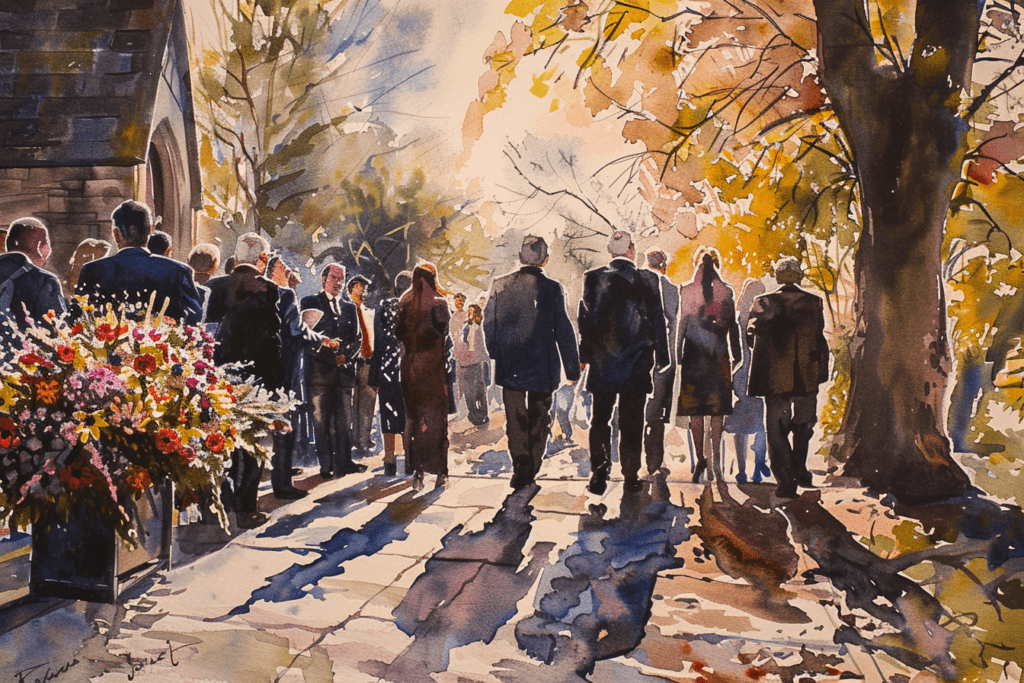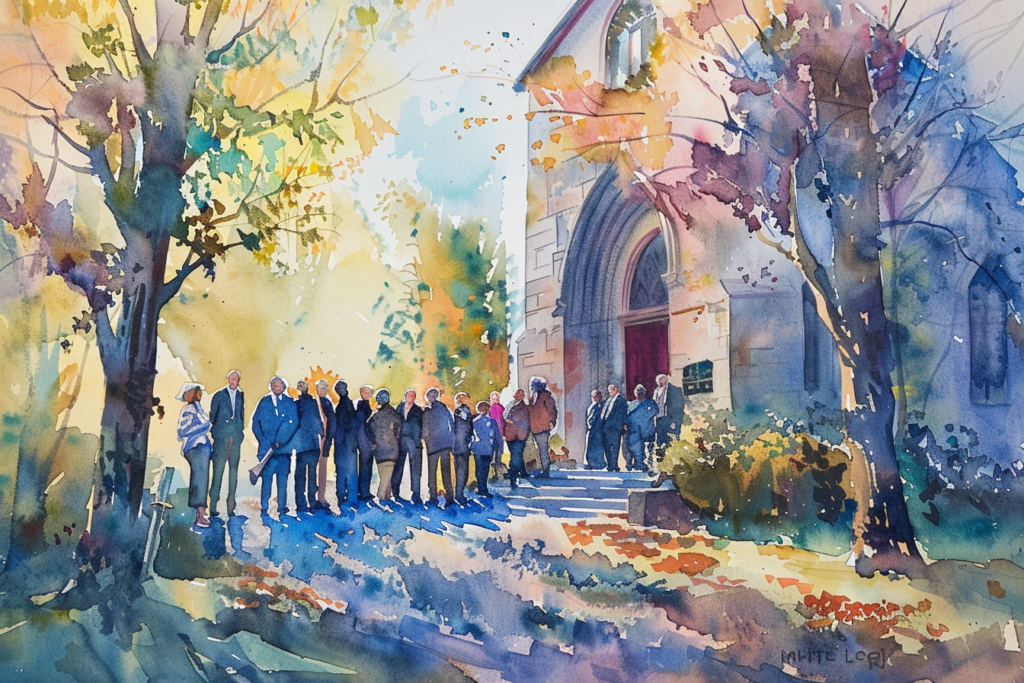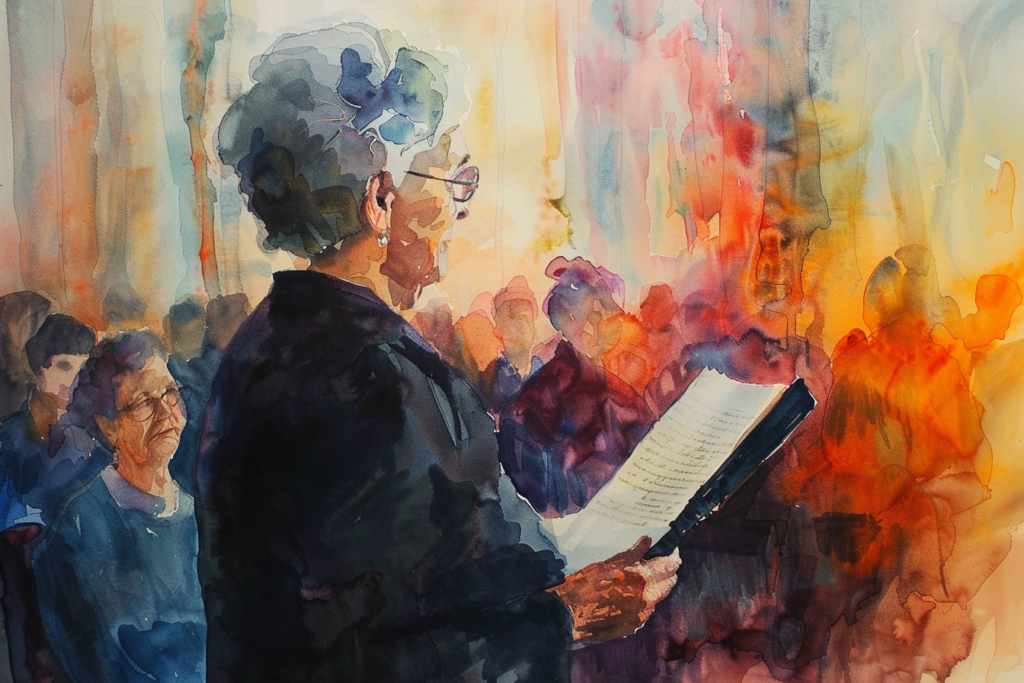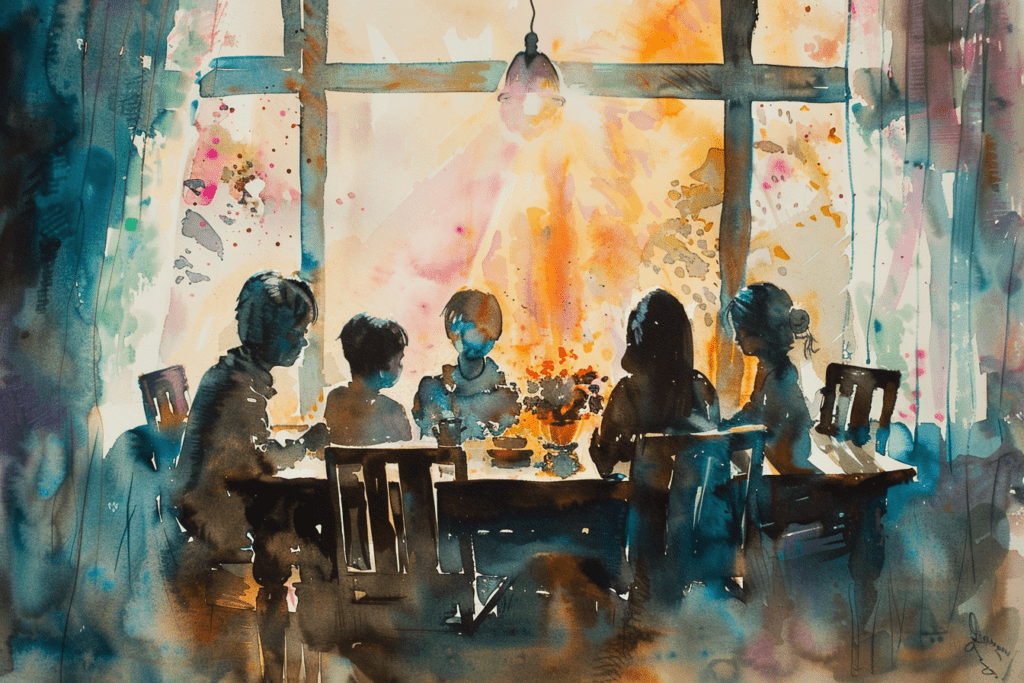
What to Include in a Funeral Thank You Card: Etiquette and Examples

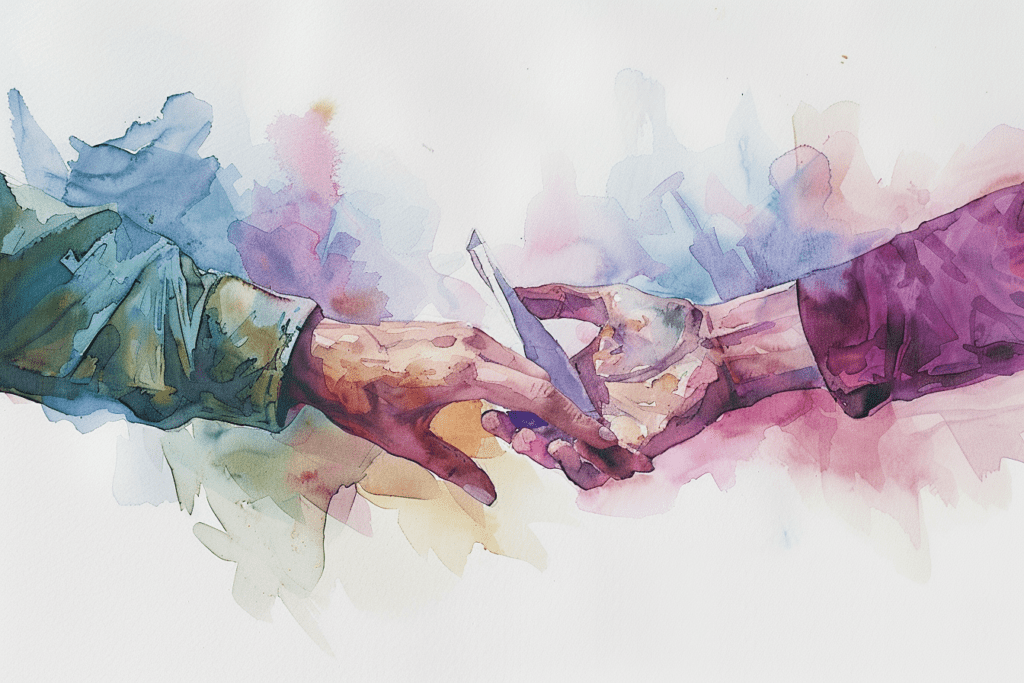

Introduction

Losing a loved one is an immensely difficult experience, and during such times, the kindness and support of friends, family, and even acquaintances can provide much-needed comfort.
Expressing gratitude for their support is not only polite but also therapeutic. Funeral thank you cards are a meaningful way to acknowledge this support.
In this article, we’ll explore what to include in a funeral thank you card, the etiquette surrounding them, and provide examples to help you find the right words.
After reading the article please consider our collection of personalised thank you cards.
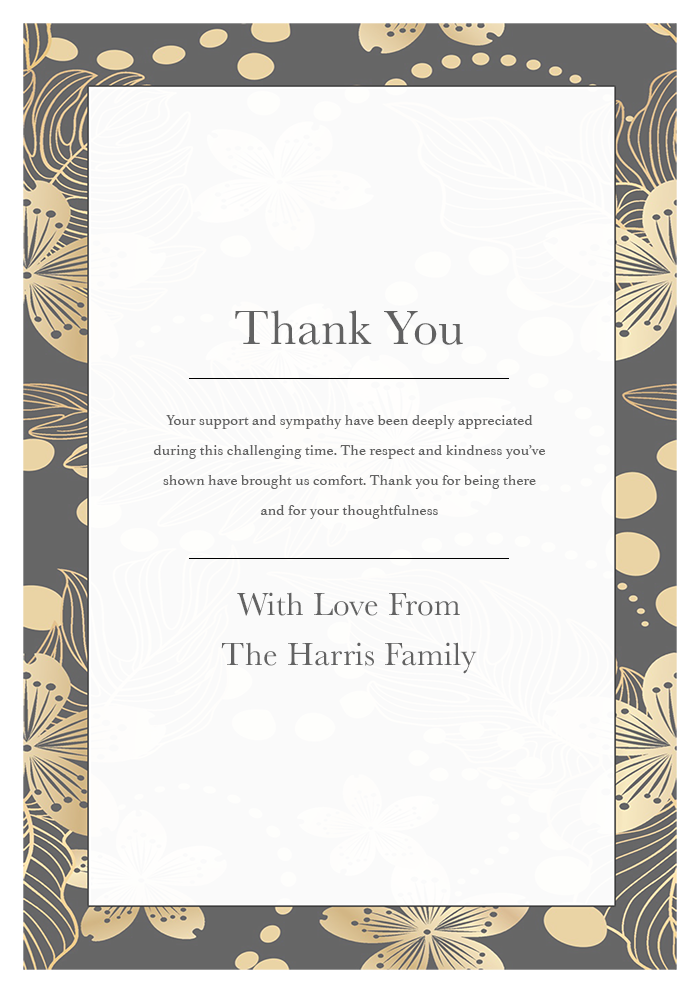
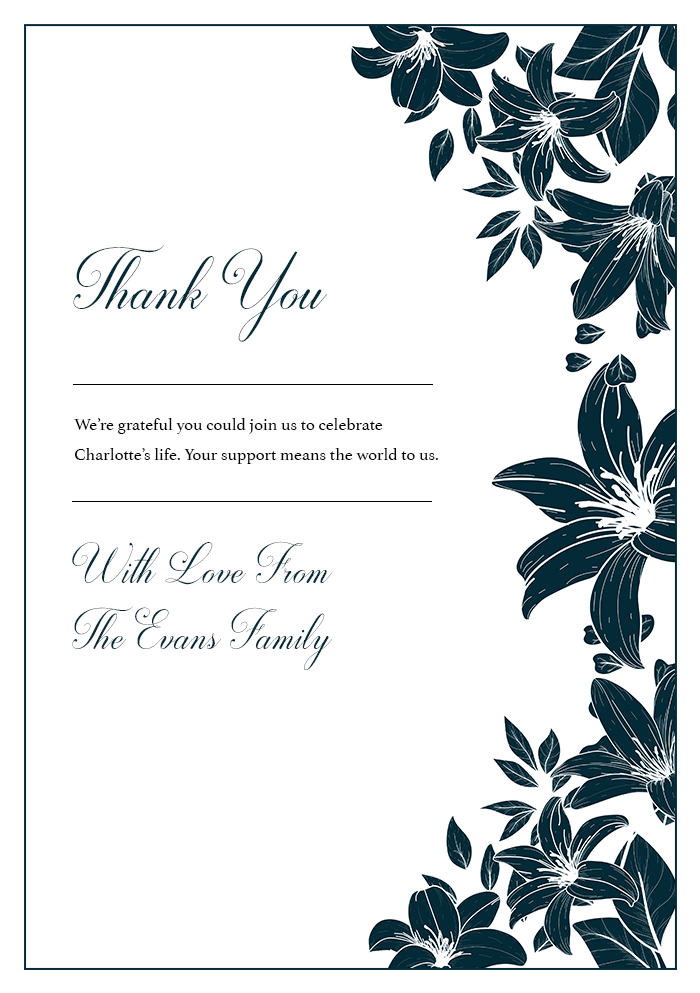
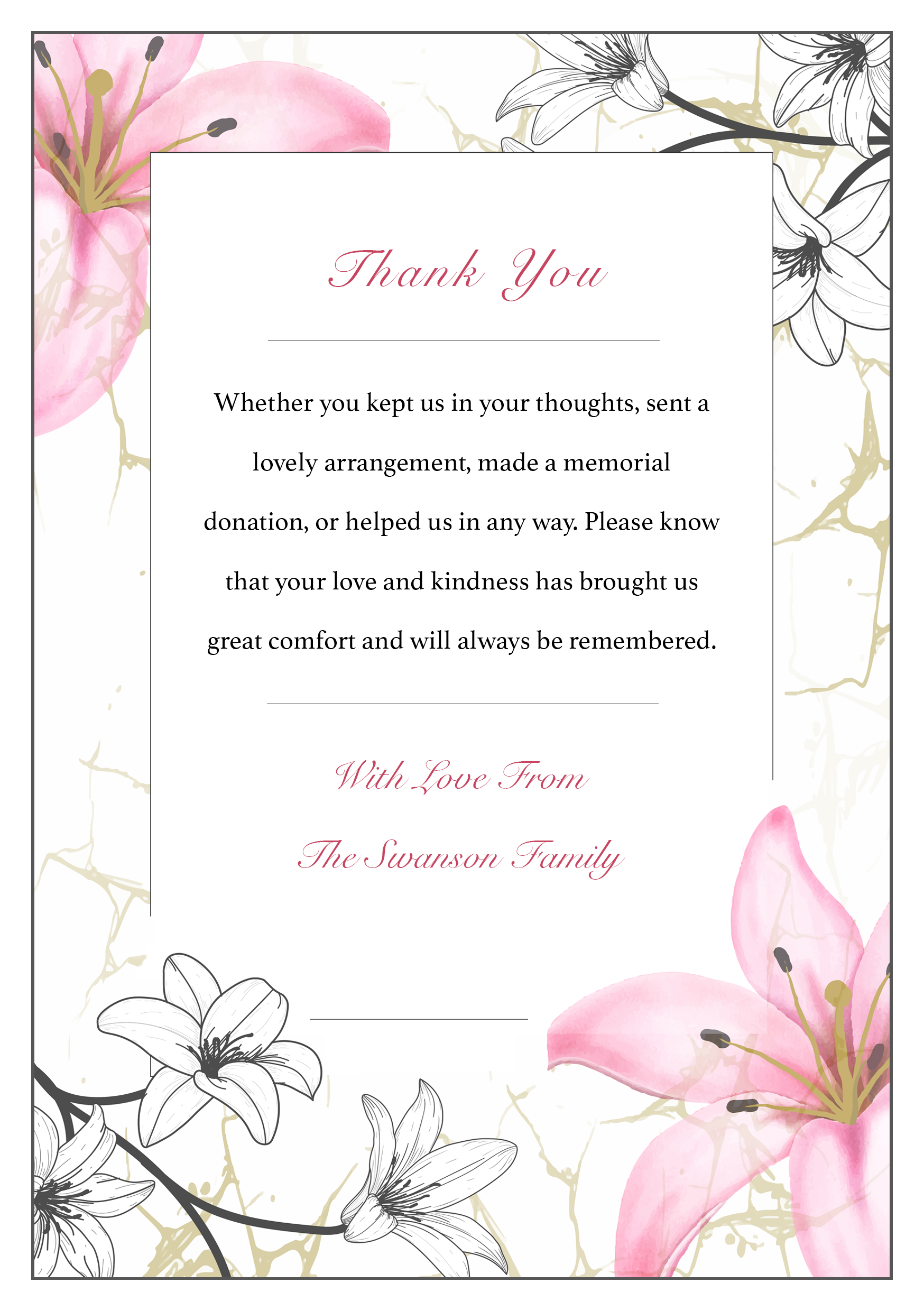
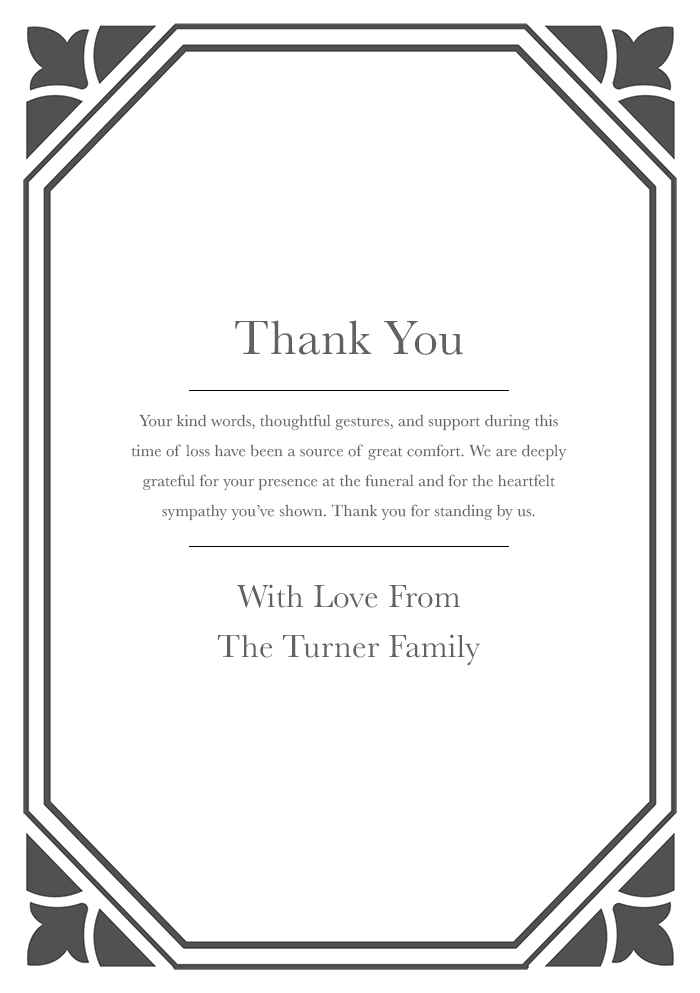
Article Contents

Why Funeral Thank You Cards Matter

Funeral thank you cards are a way to acknowledge and appreciate the support, condolences, and contributions from those around you. This can include people who attended the funeral, sent flowers, made donations, or provided meals and other support.
Recognising their kindness helps maintain connections and shows that their efforts were appreciated during your time of grief.

When to Send Thank You Cards

There’s no strict timeline for sending funeral thank you cards, but generally, it’s best to send them within two to four weeks after the funeral.
However, it’s understandable if it takes longer, given the emotional and logistical challenges you may be facing. The key is to send them when you feel ready and able.

Who Should Receive a Thank You Card?

Consider sending thank you cards to:
- People who attended the funeral or memorial service
- Those who sent flowers, cards, or donations
- Friends or neighbours who provided meals, transportation, or other support
- Clergy or officiants who led the service
- Pallbearers and anyone who played a special role in the service
Close Family and Friends
It’s essential to acknowledge the support of close family and friends who have been there for you. A heartfelt message in a thank you card can express your deep appreciation for their emotional support and assistance.
Acquaintances and Colleagues
Don’t overlook the gestures from acquaintances and colleagues. A brief, sincere note can go a long way in showing your gratitude for their thoughtfulness during this difficult time.

What to Write in a Funeral Thank You Card

Writing a funeral thank you card can be emotionally challenging. Here are some elements to consider including:
A Personal Greeting
Start with a personal greeting. Use the person’s name to make the message feel more intimate and genuine.
Expression of Gratitude
Clearly express your gratitude for the specific support they provided. Mentioning what they did or how they helped can make the message more personal and meaningful.
Acknowledgement of the Deceased
Include a mention of your loved one. This helps to personalise the message further and shows that you appreciate how the recipient honoured their memory.
A Personal Touch
Add a personal touch to your message. This could be a brief memory or a specific way their support impacted you during your time of grief.
Closing Words
End with a heartfelt closing. Phrases like “With sincere thanks,” “Gratefully,” or “With love” can provide a warm conclusion to your note.

Examples of Funeral Thank You Messages

Here are some examples to help guide your writing. Feel free to adapt them to suit your specific circumstances.
Thank You for Attending the Funeral
Dear [Name],
Thank you so much for attending [Deceased’s Name]’s funeral. Your presence meant a great deal to our family and provided comfort during this difficult time. It was heartwarming to see so many people who cared about [Deceased’s Name] and shared in our grief. Your support has been deeply appreciated.
With sincere thanks,
[Your Name]
Thank You for the Flowers
Dear [Name],
We are incredibly grateful for the beautiful flowers you sent in memory of [Deceased’s Name]. They brought a touch of beauty to a very sad day and were a lovely tribute to [his/her/their] memory. Your thoughtfulness and kindness mean a lot to us.
Gratefully,
[Your Name]
Thank You for the Donation
Dear [Name],
Thank you for your generous donation to [Charity/Organisation] in memory of [Deceased’s Name]. Your contribution will help continue [his/her/their] legacy and support a cause that was close to [his/her/their] heart. We deeply appreciate your support and kindness during this difficult time.
With heartfelt thanks,
[Your Name]
Thank You for Providing Meals
Dear [Name],
Thank you so much for the meals you provided following [Deceased’s Name]’s passing. Your kindness and generosity were incredibly helpful during such a challenging time. Knowing we had one less thing to worry about allowed us to focus on grieving and being together as a family. Your support has been a true blessing.
Warm regards,
[Your Name]
Thank You to the Clergy/Officiant
Dear [Name],
We are profoundly grateful for the beautiful service you conducted for [Deceased’s Name]. Your words and guidance provided comfort and peace during a very difficult day. Thank you for helping us honour [his/her/their] memory in such a meaningful way.
With sincere appreciation,
[Your Name]
Thank You to Pallbearers
Dear [Name],
Thank you for serving as a pallbearer at [Deceased’s Name]’s funeral. Your support and willingness to help carry [him/her/them] to [his/her/their] final resting place meant a great deal to our family. We are grateful for your kindness and presence during this time.
With heartfelt thanks,
[Your Name]
General Thank You
Dear [Name],
Thank you for your kind words and support following the loss of [Deceased’s Name]. Your sympathy and thoughtfulness have been a great comfort to our family during this difficult time. We appreciate your friendship and support more than words can express.
Warmest regards,
[Your Name]

Tips for Writing Funeral Thank You Cards

Keep It Simple
There’s no need to write lengthy messages. A few sincere sentences can convey your gratitude effectively.
Be Specific
Whenever possible, mention specific acts of kindness or support. This personal touch makes your message more meaningful.
Handwrite the Notes
Handwritten notes feel more personal and heartfelt. Take your time and write them when you feel ready.
Don’t Rush
Take your time to write and send the thank you cards. Grieving is a process, and it’s important to move at your own pace.
Use Stationery That Feels Right
Choose stationery that reflects the tone you wish to convey. Simple, elegant cards are often the best choice for funeral thank you notes.

Conclusion

Expressing gratitude through funeral thank you cards is a thoughtful way to acknowledge the support and kindness you’ve received during a difficult time.
While the task may seem daunting, taking it step by step can make it more manageable. Remember, there’s no rush, and it’s important to write these notes when you feel ready.
Use the examples and tips provided to help you craft heartfelt messages that will be appreciated by all who receive them.


